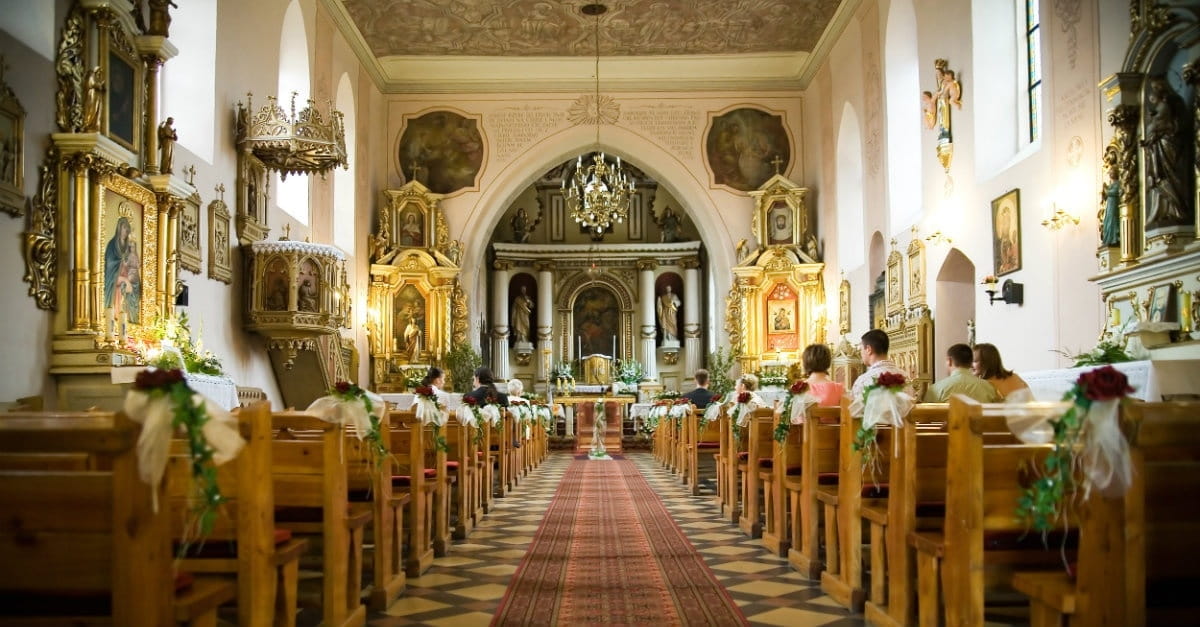....There
is a way which seemeth right unto a man.....As the way of sin and
wickedness does, it promising much carnal pleasure and myrth, there is a
great deal of company in it, it is a broad road ( Matthew 7:13-14 ),
and is pleasant and seems right, but it leads to destruction, so the way
of hypocrite " as Pharisee that trust to his own righteousness and
despises others", and even the righteousness
of Christ, or however does not submit to it, but tramples upon him, and
counts the blood of the covenant and wholy thing, and so is deserving
of sorer punishment than the profane sinner, yet on account of his
goodworks, as he calls them, fancies himself to be in a fair way for
heaven, seem to be a right way.... But the end thereof are the ways of
death, which lead unto eternal death, for that is the wages of sin (Rom
6:23).
THERE IS A WAY WHICH SEEMETH RIGHT UNTO A MAN --- This
way refer to the blinding effects of passion and self-will, for these
make a man think his own way best and most desirable . But it seems
better to take as warning against following perverted or uninstructed
concience. Concience needs to be informed by God's Word and ruled by
God's will to make it safe guide.
BUT, THE END THEREOF ARE THE
WAYS OF DEATH (Prov 5:5).--- The man is following a false light, and is
led astray, and goes headlong to destruction (Rom 1:28, 1Tim 4:2)
We cannot depend upon what seems rigth to a man. We must place our
trust in WHAT IS RIGHT, TO DO. For " there is a way that seems right to a
man, but its end is destruction.
NOW, what pathway are you
following, today? Are you sure that pathway is right??? There is a way
that is right, and cannot be wrong. There is a pathway, that leads to
all the spiritual blessings you need.... A road that leads to heaven.
Jesus said John 14:6 , "I AM the Way"
What ought to do??? we ought
to be sure of every steps we take. You may be sincere.... but wrong.
So, you need to be sure you are right! if you depend 100% on GOD'S WORD
the Bible (Believe in Biblical salvation), then you have nothing to be
worried
Usain Bolt is the world’s fastest man. In 2008 he broke the world
record for the one hundred meter run three months before the Beijing
Olympics. Since then he’s dominated every competition. But that didn’t
prevent the six-foot-five Jamaican from being disqualified at the 2011
world track and field championships held in Daegu, South Korea.
Crouching at the line for the one hundred meter final, Bolt jumped the
blocks early, which disqualified him from the race.
Fellow runners were stunned. Bolt was the latest to fall victim to a new rule referred to as “one and done.” One false start, and the favored athlete was erased from the competition. The rule was adopted to accommodate television broadcast schedules and fans who disliked waiting through countless false starts for races to begin. Prior to that, each runner had been allowed a second chance.
Fortunately for us, God doesn’t have a “one and done” rule. If he did, who on the planet would be left to run the race spoken of in Hebrews:
And still he loves us.
That’s the miracle, the good news that’s worth celebrating every single day of our lives. If you’ve fallen prey to the lie that God couldn’t possibly forgive you for what you’ve done or how many times you’ve done it, decide today to reject it. Don’t dignify it by giving it a hearing in your heart. Instead, find a way to show God you are sincerely sorry. Commit to making amends. But rest in this truth and let it shape the race ahead: as far as the east is from the west, so far has he removed your sins from you.
Fellow runners were stunned. Bolt was the latest to fall victim to a new rule referred to as “one and done.” One false start, and the favored athlete was erased from the competition. The rule was adopted to accommodate television broadcast schedules and fans who disliked waiting through countless false starts for races to begin. Prior to that, each runner had been allowed a second chance.
Fortunately for us, God doesn’t have a “one and done” rule. If he did, who on the planet would be left to run the race spoken of in Hebrews:
“Since we are surrounded by such a huge crowd of witnesses to the life of faith, let us strip off every weight that slows us down, especially the sin that so easily trips us up. And let us run with endurance the race God has set before us” (12:1).The truth is, God is even more familiar with our failings than we are.
And still he loves us.
That’s the miracle, the good news that’s worth celebrating every single day of our lives. If you’ve fallen prey to the lie that God couldn’t possibly forgive you for what you’ve done or how many times you’ve done it, decide today to reject it. Don’t dignify it by giving it a hearing in your heart. Instead, find a way to show God you are sincerely sorry. Commit to making amends. But rest in this truth and let it shape the race ahead: as far as the east is from the west, so far has he removed your sins from you.



